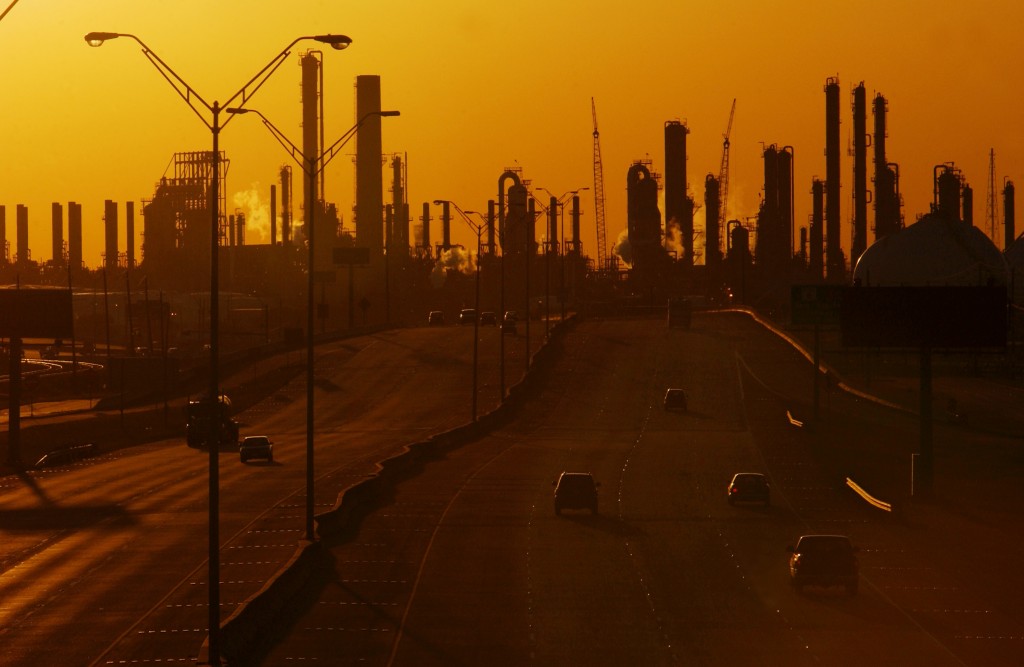Recently, Texans for Natural Gas (TXNG) issued a report claiming methane emissions have drastically decreased in several of the largest natural gas producing counties in Texas from 2011 to 2016. The notion of methane emissions rapidly declining across Texas during the largest U.S. oil and gas boom of the century is described in the report’s blog post… Keep reading →
Exxon
Texans For Natural Gas Uses Misleading Data On Methane In Texas
By Environmental Defense Fund Energy Exchange BlogSign up and get Breaking Energy news in your inbox.
We will never sell or share your information without your consent. See our privacy policy.Ignoring Climate Change Is Risky Business
By EEnergy InformerA report on risk of inaction unlikely to change those still in denial The messenger of the news is sometimes as important as the message, if not more so. In that context, former New York City mayor Michael Bloomberg, former US Treasury Secretary Henry Paulson and former hedge fund manager and environmental activist Thomas Steyer… Keep reading →
The Audubon Society is upset with a US Department of Interior decision to allow wind farm operators to obtain permit extensions allowing accidental bird death or injury for up to 30 years. Interior says the permit extensions provide regulatory certainty to wind developers, but Audubon thinks the move fails to balance “the need for conservation… Keep reading →
Rex Tillerson, CEO of ExxonMobil recently met separately with Iraqi Prime Minister Nuri al-Maliki and Kurdistan Regional Government Prime Minister Masoud Barzani to discuss the company’s provocative stance within Iraq’s critical oil and gas sector. Exxon is simultaneously famous for its “my way or the highway” approach and for shying away from the internal politics of sovereign nations where it operates, so these high-profile meetings create many questions about the future of Iraq’s oil and gas development framework.
The disagreement and distrust between Baghdad and the KRG has gone on since the former regime fell in 2003, with the two sides unable to reach an agreement on oil revenue sharing, contractual terms with foreign oil companies, export routes and other issues.
Most of Iraq’s developed fields and export infrastructure is located in the south, but the Kurdish regional area in the north contains considerable undeveloped reserves and its border with Turkey offers additional export routes to European and western markets.
Baghdad has barred companies that sign contracts with the KRG from operating in the south, but ExxonMobil – having already established itself in one of the most prolific southern fields, West Qurna-1 – also signed production sharing contacts with the KRG in 2011. This infuriated the central government and Oil Ministry who barred Exxon from future licensing rounds and demanded the company sell its West Qurna-1 stake. Exxon has reportedly spoken to potential buyers.
In 2009 and 2010, Exxon – along with partner Shell – agreed to increase West Qurna-1 output from about 250,000 b/d to 2.825 million b/d within 7 years. “Initial field production of 244,000 barrels per day has now increased to 285,000 barrels per day, which exceeds the 10 percent improved production target established under the technical services contract,” Exxon said in a 2011 statement. The service contract terms provide the companies a $1.90/bbl remuneration fee for incremental output from developed formations and a $2.00/bbl fee from nearby discovered, undeveloped formations.

It’s hard to see why Exxon would risk its West Qurna-1 stake with hundreds of thousands of barrels of incremental daily production virtually guaranteed, but the prospect of bookable reserves could be a factor.
This was a major issue 10 years ago when Baghdad was trying to figure the best way to re-open the country’s oil sector to western companies. Ceding control of Iraq’s national resources by allowing foreign companies to book reserves would be politically toxic domestically and internationally. The nascent democratic government could not risk the fragile trust of its ethnically and religiously diverse population and western governments involved in Saddam Hussein’s ouster were sensitive to perpetuating the view that the war was about accessing Iraq’s enormous oil and gas reserves.
As such, the technical service contract became the preferred legal construct under which international oil companies would operate. As contractors they would receive a fee for services rendered, but could not book reserves, similar to the terms governing service companies like Schlumberger and Halliburton in their dealings with oil companies.
The majors were not thrilled with the generally tough terms dictated by Iraq’s Ministry of Oil, but the hope was that by getting their foot in the door to some of the world’s largest oil reserves and doing a good job things might open up down the road. At least this arrangement was better than the situation under Saddam Hussein when there was no access at all.
However, the KRG offers more attractive terms to foreign operators than Baghdad. Traditional production sharing contracts typically allow companies to book a portion of the reserves being developed. Regional operators have discussed the possibility of booking reserves. For example, Calgary-based E&P firm Western Zagros stated in its most recent Annual Information Form it “believes that there is excellent potential for the establishment of significant reserves and production on its PSC Lands.”
The exact details of Tillerson’s meeting with Barzani are unclear, but the potential to report Kurdish reserves on Exxon’s books could represent the added value required to walk away from West Qurna-1.
It is also possible that Exxon is attempting to hasten a grand bargain between the KRG and Iraq’s Central Government that would arguably be in everyone’s best interests, but the regional and central leaders appear to remain far apart on the issues.
Meanwhile, Kurdish leaders have reportedly been meeting with Turkish government representatives to discuss oil and gas transport possibilities, which if solidified, would reduce KRG reliance on Baghdad and put them in a stronger bargaining position, as some have recently suggested. Potentially lucrative petroleum pipeline deals in the north coupled with service contracts in the south could also be a desirable outcome for the oil majors operating in Iraq.
Iraq’s importance in global oil markets cannot be understated as the country’s export volumes play an increasingly crucial role in fundamentals and price discovery. Exxon’s foray into Iraqi politics highlights the valuable stakes,and whatever happens could alter the course of regional oil and gas development.
Keep reading →
Your favorite Exxon station is very likely not owned or operated by Exxon and the same is true for the rest of the major oil companies. The Chevron’s and BP’s of the world largely distanced themselves from the branded retail gasoline business following the mega-mergers of the late 1990’s and early 2000’s due to financial and regulatory factors.
In fact, these businesses – that most people still refer to as gas stations – are now thought of by the industry as convenience stores that sell motor fuels. The downstream segment – refining and marketing – of the oil and gas business has been marginally profitable for decades. But the vertically integrated model first championed by John D. Rockefeller’s Standard Oil remains attractive to the majors because owning refineries provides a guaranteed market for their often highly-profitable upstream businesses of finding and developing oil and gas. The upstream was often thought of as subsidizing the downstream, as Steve Coll described it in his book about ExxonMobil, “Private Empire.” Keep reading →
 A police officer stands guard after the ExxonMobil annual shareholders meeting at the Morton H. Meyerson Symphony Center May 28, 2008 in Dallas, Texas.
A police officer stands guard after the ExxonMobil annual shareholders meeting at the Morton H. Meyerson Symphony Center May 28, 2008 in Dallas, Texas.
One of the world’s largest oil companies – ExxonMobil – expects considerable renewable energy growth over the next 30 years, primarily for power generation and mostly from wind. Keep reading →



